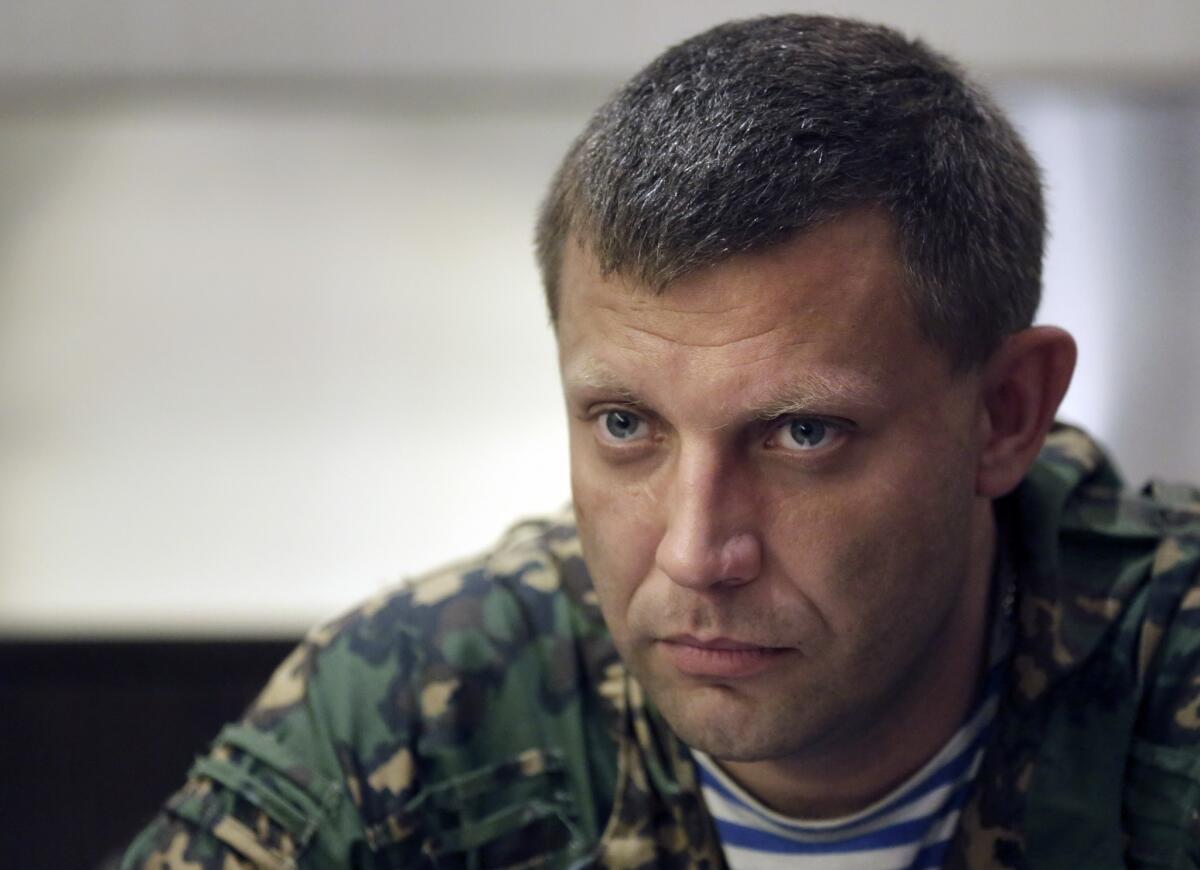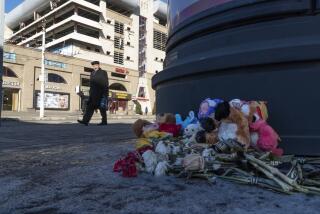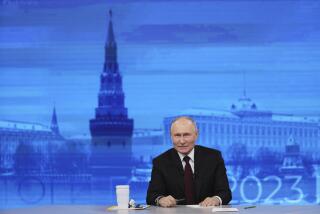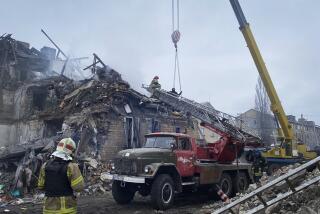In Ukraine, pro-Russia separatists press on with building a new state

Pro-Russia separatist leader Denis Pushilin, working in the high-ceilinged auditorium of an occupied building, insisted that a self-declared new government would take care of its own without Ukraine.
A humanitarian arm of what separatists are calling the Federal State of Novorossiya, which covers breakaway areas Donetsk and Luhansk, was recently established to provide food, shelter and sometimes evacuation to those in need because of the fighting between the separatists and Ukrainian military forces, Pushilin said.
“The situation is such that we can’t make people stay if they feel they are in danger,” he said in an interview this week.
Donetsk, a separatist stronghold, and other parts of eastern Ukraine have seen hundreds of thousands of civilians flee as heavy shelling and fierce fighting have killed more than 2,000 people since the uprising began in April. Though separatists say that ministries to deal with the business of a new state, including education, social problems, economic development and other issues, are being established, the problems they face remain severe.
A Donetsk city official said it was unlikely that schools would open this year.
“How can we invite students to come to school if every two days a school is shelled, and every third day a hospital?” Konstyantyn Savinov, the Donetsk city council’s head of community services, said Tuesday.
Savinov said he spends his days trying to keep the lights on and the water running in the city, where shelling has damaged pumping stations, water pipes and power lines.
How exactly new government structures would be financed remains to be seen. Separatist leaders said in April that they had opened a bank account in Russia to collect donations, and more recently indicated that they remained as determined as ever to build a new state.
“In the end, that is what will protect them: a people’s government,” Pushilin said. “I personally do not see a zone for constructive conversation with Kiev.”
Few, if any, signs of ending the crisis emerged from a gathering of regional leaders Tuesday in Minsk, the capital of Belarus. It was the first meeting between Russian President Vladimir Putin and Ukrainian President Petro Poroshenko since Poroshenko’s inauguration in June.
The rebellion against the Ukrainian government in Kiev, the capital, followed the Russian invasion of the Crimean peninsula in February and its annexation in March. Pro-Russia separatists have occupied government buildings in parts of Ukraine for several months.
Anton Gerashchenko, an advisor to the Ukrainian interior minister, was dismissive of the separatists and their self-declared government.
“Building a democratic state means elections. But who elected these guys?” Gerashchenko said during a telephone interview Wednesday. “The only information we get about these guys and their positions is through the Russian news channels. They are just marionettes of Putin, nothing more.”
Meanwhile, as the Ukrainian military has made notable gains in recent weeks, taking back several cities and towns occupied by separatists, the fighting has intensified. In Donetsk, heavy artillery fire is a constant threat, even in the modern city center.
Two years ago, the city hosted the European football championship, and its green boulevards and upscale restaurants and hotels received praise from hundreds of thousands of international visitors, who watched matches in the city’s new multimillion-dollar stadium.
The stadium is home to the Shaktar, or Miners, soccer team, and games typically draw thousands of season pass holders and evoke strong civic pride. But when the fighting started, many of the team’s foreign players refused to return to Donetsk, meaning the eastern powerhouse of soccer now is in the western Ukrainian city of Lviv.
On Friday, a mortar shell ripped a hole in the side of Donetsk’s glass and steel stadium.
The rest of the city seems deserted, with shopping malls closed and restaurant windows boarded up. Apartment windows are crisscrossed with tape, which residents hope will provide some protection against shattering if the next round of explosions hits nearby.
Residents of Donetsk who either cannot or will not leave try to maintain some sort of normality.
Rosa Kovalenko, 76, whose apartment in the Petrovka region was destroyed by shelling, lives in the basement of School No. 114 with about 20 others. The school is about four miles from the front line, where separatist forces are trying to hold back Ukrainian forces.
“Where am I to live now?” Kovalenko asked. “I will die in this basement.”
Ayres is a special correspondent.
More to Read
Start your day right
Sign up for Essential California for news, features and recommendations from the L.A. Times and beyond in your inbox six days a week.
You may occasionally receive promotional content from the Los Angeles Times.







